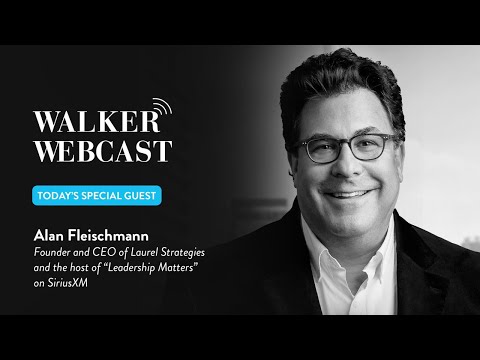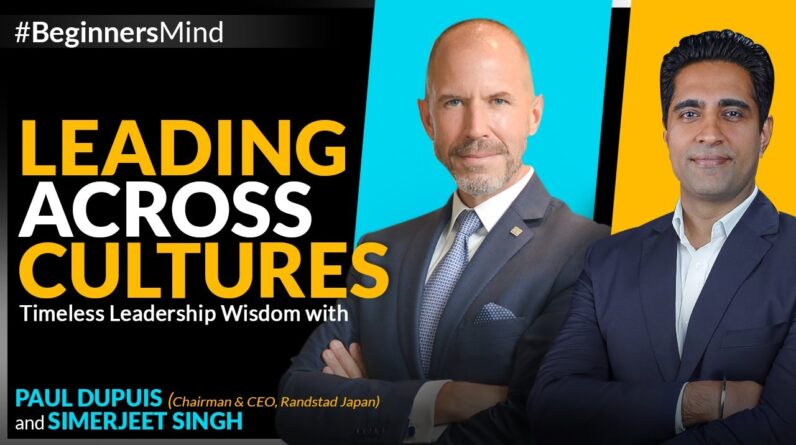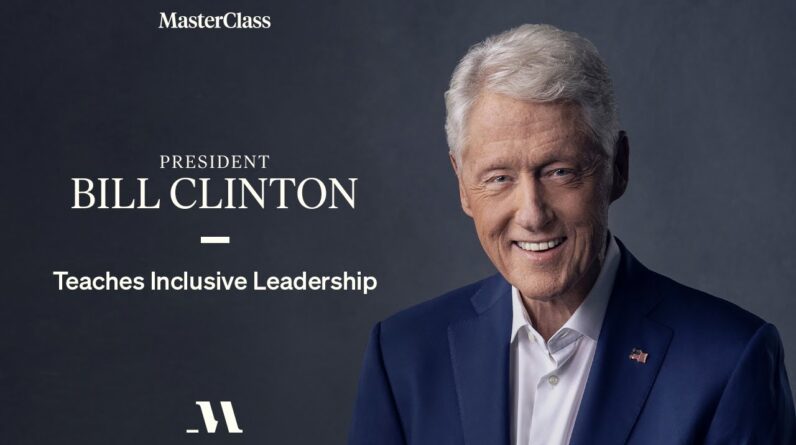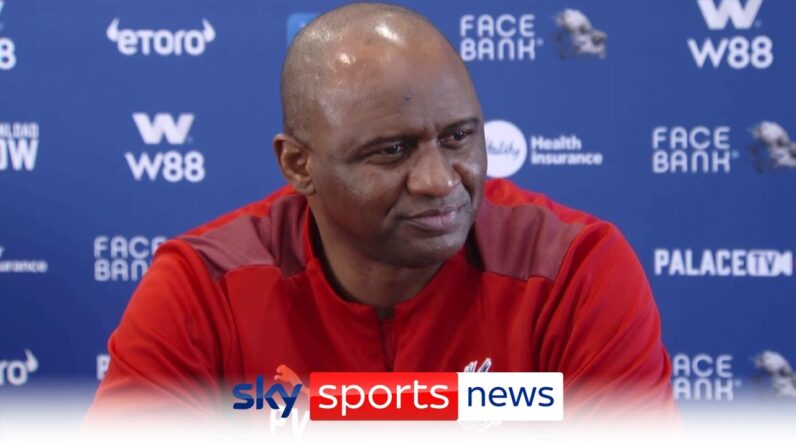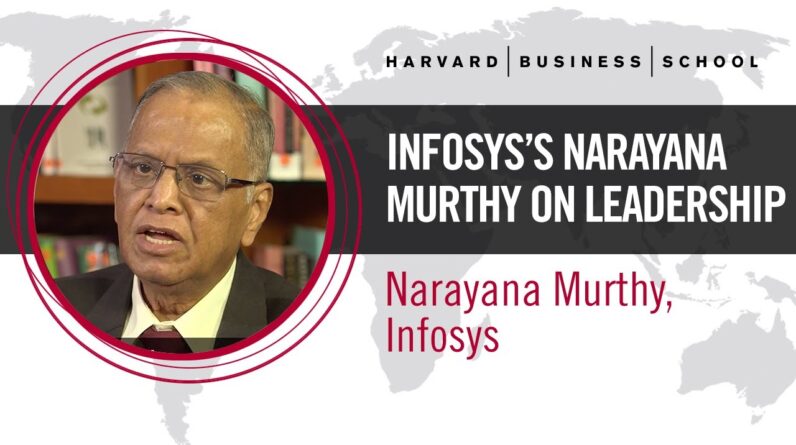Eric Schmidt, the founder of Schmidt Futures, is leading a commission on reviving New York’s economy. In his interview on Leadership Live with David Rubenstein, he discusses his efforts in doing so. As the former chief executive officer for Google and co-founder of Schmidt Futures, Eric Schmidt knows something about how to run a successful business. He has now set his sights on reviving New York’s economy as the leader of a commission to do so. In an interview with David Rubenstein, Schmidt discusses just what he is doing and how he plans to help revitalize this great city.
May.22 — Eric Schmidt, the former Google chief executive officer and co-founder of Schmidt Futures, says businesses must prepare for a post-virus world. Schmidt is leading a commission on reviving New York’s economy and discusses his efforts on “Leadership Live With David Rubenstein.”
In the show, former Google CEO Eric Schmidt discusses leadership, culture, and the choices of successful people. Known as “The Giving Pledge,” Rubenstein is a philanthropist and financial expert. He has a deep passion for helping people and has donated millions of dollars to many causes. His latest donation will support the Smithsonian Institution and the DC Zoo, which recently welcomed a male giant panda cub.
Those who follow the tech industry closely should pay close attention to what former Google CEO Eric Schmidt had to say on his recent podcast. In it, he calls for a lack of emotionality and more data-driven decision-making. Both people are visionaries and often make decisions that are 10 or 20 years in the future. While they might disagree on the details, both share a similar belief that leadership is about defining one’s self, rather than making a decision for today.
Next Word: This new weekly podcast by David Rubenstein focuses on interviewing world leaders. In this episode, the former Google CEO talks about Facebook’s recent behavior. He also says that the tech industry needs to practice restraint in making decisions based on data. It is important to remember that a good leader should be able to take the high road, not a short-term goal.
Jeff Bezos – As an Amazon founder, it’s a smart move to think long-term when choosing a career path. The former Google CEO opted to leave some of his jobs when he was confronted with the scandals that emerged. He also said that the tech industry should be restrained, rather than being overly emotional and impulsive. Regardless of the decision, a visionary will choose a course that serves the company best.
Both men are visionary. The former Google CEO is a data-driven decision maker, whereas Eric Schmidt is a visionary. He makes decisions for the future, not today. While Jeff Buffett and Eric Schmidt are both visionary and data-driven, their philosophies are not identical. While both men value creativity and vision, they are very different. While they may be similar in many ways, their strategies are vastly different.
The two leaders discuss the importance of employee engagement, and how it can be measured and increased. Employee engagement is closely tied to performance and reward behavior. In addition, a high-performing employee will have a high level of engagement. By contrast, a low-engagement company will have a lower rate of productivity. This is why it’s important for a leader to be a leader for the better.
The CEO should also focus on the importance of employee engagement. Employee engagement is the key to a high-performing company. After all, employee happiness is directly tied to the quality of the work. Therefore, employees are the best asset to your company. By fostering their engagement, you will create a positive environment for everyone. You will be able to keep them happy, productive, and productive.
This program focuses on fostering employee engagement. The keynote speaker shares how employee engagement is directly tied to performance and reward behaviors. In other words, employee engagement is the foundation for any great organization. Moreover, it is vital for managers to understand the benefits of engaging employees. For example, the company will have a high-performing workforce. However, if employees are not engaged, they will not be as successful as they can be.
This program teaches leaders how to build a culture of engagement among employees. Employee engagement is a direct result of the rewards given to individuals. This is a direct result of the way a leader rewards employees. In the session, he explains why employee engagement is important. It is tied to performance. A company that motivates their employees will increase its profits. A highly motivated workforce will be more productive.
Transcript is below
Over the last 30 years I’ve seen a lot of crises and I’ve managed through some of them myself but nothing I’ve ever seen before it’s like the prices we now have it’s a health crisis it’s an energy crisis it’s a financial crisis the combination of all those has made the job of being a CEO extraordinarily difficult.
I want to talk to CEOs now and see how they’re living through this crisis I want to see how they’re dealing with their customers how are they’re dealing with their employees how are they dealing with the government how are they going to rise up to the occasion what’s gonna make these CEOs great that’s what I want to know this is leadership live I’m very pleased today to have a special guest Eric Schmidt who’s coming to you from a home in California Eric welcome and thank you very much for coming great to see you again David.
so Eric you’ve agreed to chair a commission that Governor Cuomo asked you to chair to help figure out how New York can benefit from your technology expertise and how it can become a better state in the future and how they can benefit from what happened in kovat 19 can you tell us a little bit about the commission and when you expect to produce results so we’ve just gotten started you know Governor Cuomo is doing quite a good job as a governor and they certainly compared to the other governor’s grappling with a lot of problems at the same time he’s created a reimagine New York state task force for which I’m chair there’ll be 15 members we’re putting the people together this week and the idea initially is to focus on three areas of issues one is telehealth basically how do you deal with the medical system
Another one is broadband essentially how do you participate in all of this if you don’t would have access to broadband and there plenty of people who are underserved who don’t have that and then the third one is reimagining how we’re going to work how do people feel about going to those tall skyscrapers and taking the subway to do so all of that he’s gonna get addressed by our commission and probably some other things as well and you expect to complete that work in a year or so we’d like to have initial results in three to six months and the reason is that this is not one of these think-tank approaches the state needs help as do all the states and this pandemic is going to go on for pretty long time we better get used to dealing with it making some adjustment etc etc do you think that people really want to come back generally to their employer and do you think we should force them back in some way or just let it be the decision of the employee because we failed to have a universal testing regime and because we don’t have good sentinel and monitoring systems core problem we have now is we’ve trained all of our citizens that they can’t be sure if they meet someone on the street that they’re not infected that they won’t get it and because on the order of half of the transmission is asymptomatic that person that person who you know or you know vaguely may give you the disease in a way that you don’t that you don’t even expect right they don’t know that they’re sick it’s not their fault it was just happening
Indeed there’s evidence that your your most your your most contagious right at the beginning of the disease around day five or six and there’s lots of viral shedding and it declines so you have to think about how do we deal with the legitimate and illegitimate fear that people are going to have so my guess is you’re going to see more people organize themselves into roughly three buckets a set of people who can’t go to work because their kids are at home and they have to be in charge of the kids and the schools aren’t open that needs to get fixed otherwise we have a national tragedy you have a set of people who have extremely low tolerance for getting this disease because they’re a cancer survivor they’re immunosuppressed or what have you they really need to stay at home and you have people like myself who are just dying to go to the office that partitioning will be done in each company in different ways so for example if I’m working in a software group which is sort of what I like to do we will organise that some of us will be in the office some of us will be at home some of us will be in a satellite office but we know each other we’ll work together so for white collar workers you’re going to see the organisation where some people will be in headquarters some people in satellites
Um we’ve them homes that will be fine the harder problem is people who have to be physically present to work and that’s gonna be very very difficult because you’re gonna have to enforce social distancing for all the obvious reasons people gonna have to wear masks and people are gonna have to be careful now let’s talk about testing for a moment are you surprised that we haven’t been able get everybody in the United States a test and do you think it’s essential for everybody to be tested in order to make everybody safe and when they go back to work or feel safe well it as a matter of the population as a whole so let’s let’s go back to what the government should have done
One of the first things the government should have done is get people masks and get them to wear it I’m shocked that it is not a requirement by the government that you fly with a mask on and that you get in the subway and public transportation with a mask on wearing a mask is the easiest way to say I care about humans because the masks although it may not protect you it certainly protects others there’s lots of evidence that mask wearing this was also true a 1918 by the way so you could imagine relatively simple things like that that could materially improve confidence and and so forth and I think that that some combination like that is what we’re going to have to do I wish we had a better answer
I also believe that you don’t have to test everyone you have to test us a statistically significant number of people there are estimates that if you were able to test 1% of the population and you did it in a particularly statistically correct way you would get enough information that you could build a sentinel system that’s what it’s called and what it would do is it would alert you to outbreak at the moment that the in the United States the disease is they can contagion if you will of the disease is flat the slightly negative it’s crucial that we get it down in the summer because people are outside and there’s less transmission when you’re outdoors one estimate from Japan by the way was that being outdoors was 19 times safer than being indoors so if I were in charge what I would tell people is wear a mask spend your time outdoors you can wear a mask and spend you’re out of time whose time doors you’re fine so for example outdoor restaurants outdoor construction sites
And so forth now you also have to worry about the people in the kitchen but you get the point now do you fault the Chinese and anything in relating the technology when they discover they had this problem should they have done something differently to deal with the problem or alert more people to it or you think the Chinese really did the most that they could do as I understand it there’s a lot of fault going everywhere
The Chinese should have alerted people more quickly they eventually did but they but let me just explain it this way this is a simple test if something is doubling every three days How do you get ahead of it if you look at the countries that have that have done well compared to the countries that are in trouble which includes the United States they all had one point they all acted extremely quickly when they saw this wave coming America did not China did after a delay but that delay hurt
Let’s imagine for example in New York as an example shutting down the restaurants and so forth and so on If you delay a week that’s a factor of four more infections in this critical period in critical infection rate of the disease was doubling every three days nowadays it’s a much better shape in many scenarios it’s doubling every 24 days every 30 days that gives you much more time but when you’ve got an acute attack like we saw in January and February I think there’s plenty of blame to go around for all the governments around the world do you fault the infectious disease people who’ve been saying stay at home wear masks self isolate because there’s been some criticism that they have effect shut down the economy where do you come out on that debate you have to solve both problems you have to solve a horrific health care problem and the health care workers in our country have done a fantastic job if you look at the price lists remember this all started because we were worried that the hospitals would be overloaded
We were terrified that we would have people in a heart attack couldn’t get to the hospital people dying from heart attacks we’ve managed to avoid that through an extraordinary work from many many people at the state federal and local level and in the hospitals so the second problem you have to is you have to come up with some economic solution the the level of unemployment that is now that we now have is on the order and approaching that of the depression we need that period to be as short as possible and the Treasury has generally done a good job of getting money into the systems we don’t have a liquidity problem I’m worried we have a bankruptcy problem but eventually you can float the businesses long enough but basically if there is no demand they cannot stay in business and those are permanent job losses
So when I look at the the actions of the people my primary criticism is the speed with which action occurred if you think about it much of the deaths could be a could have been avoided now had we acted a month earlier in every decision do you think that the effort to maybe diminish the impact of the technology companies in our economy will continue or do you think the technology companies are footin themselves so valuable that they will continue to be very strong I’m sure in the future there’ll be lots of tensions over this but imagine the pandemic without Amazon without Google without Apple without Facebook etc etc it was thought before covid 19 that maybe the technology companies were coming too big and too powerful and the largest technology companies were dominating our economy right now
They become very important in this Covid 19 crisis do you think that the effort to maybe diminish the impact of the technology companies in our economy will continue or do you think the technology companies have proven themselves so valuable that they will continue to be very strong well you know I think large companies always face opposition whether it’s from their competitors or from intrinsic interests or political forces or the press or what-have-you and I understand that I for one want to thank Amazon for hiring another hundred thousand workers so they can get my packages to my home that much quicker and I think all of us should be grateful that these tech companies are working really hard to help right now
I’m sure in the future there’ll be lots of tensions over this but imagine the pandemic without Amazon without Google without Apple without Facebook etc etc without Microsoft the usual suspects how would you be spending your time without Netflix or YouTube for what have you you see my point so let’s talk about the technology companies in helping solve the crisis in terms of the coming up with a vaccine perhaps those AI help technology companies figure out what might work and are the biotech companies using AI they come up with a vaccine and what is your view on the likelihood of a vaccine so they are and there’s lots of good news there so a non-technical description of what chemists do is they wake up in the morning and they have an idea about a combination of a series of proteins and then they mix it in the lab and they try it out and it fails and at night they go home eat dinner go to sleep wake up and they have a new idea and they try it again so what they’re trying to do is they’re trying to find in the space of infinite possibilities what combination of proteins and antigens and so forth and so on will actually stop something or start something you can systematize that with AI you can actually have an AI system predict what his or her intuition is and then do it as an assay and was due thousands at the same time and get orders of magnitude faster scenarios that is part of the key to why we’ve made so much progress in the biology of the disease
When the Chinese outbreak occurred the Chinese published essentially a map of the virus very very quickly in America people like the broad institution of which I’m a board member were able to identify where the receptors were with that information you can now go find a combination of the proteins that will go and basically stop and start this process and that’s we that formed the basis of the Moderna vaccine which is in phase one trials and in fact is some of the basis of Phase two trials that are going on in China the government did one thing well last year which is it created something called Barda and Barda is a essentially a advanced research agency for this sort of thing and a set of philanthropist including Bill Gates I have been working hard and doing pre-buying and generally getting things ready for a vaccine the problem with vaccines is you have to first test if they don’t don’t hurt the hosts second you have to see if they actually produce anything and the third is that you have to see if they actually have an impact you can speed that process up but you can’t speed it up in decades it normally takes five or ten years to produce the vaccine we’re trying to do it in roughly 12 to 18 months if we did come up with a vaccine or someone came up with it first would we have enough manufacturing capability to produce enough for vaccines for everybody is that realistic so so most people have looked at this have concluded that eventually yet but not in the short term short term being one or two years there is a universal agreement that the vaccine should first be available to healthcare workers the people who are most at risk and people like people who are in nursing homes the places that are worst people are working in meatpacking facilities where there’s just a high probability of transmission and my guess is that what will happen is they’ll there will be a vaccine within 12 months or so and then there will be a big fight over who gets it I have funded through various maneuvers ideas and projects to try to think about how to do that ethically but that’s a problem we’ll face when we get there right now we need to work on the vaccine so many the company’s stocks have gone up which are thought to be producing a vaccine or potential vaccine but no well actually own the vaccine will it be the company we’ve got a lot of government money to help produce it or will the u.s. government owner will the world owners who own these vaccines I think most people believe that the companies will essentially run nonprofit for the first period that’s the presumption I can imagine that the government could pass a law that under force majeure could actually force the intellectual property be published because it’s likely that this disease is not gonna go away it makes sense to allow these firms to own intellectual property because you’re gonna want to be vaccinated in the future that vaccines are not forever that sort of thing so it’s not obvious to me that the government should should just take the vaccine from the inventor in some sort of brute way it might be better to have a more clever strategy initially I think everybody’s focused on the health care I wanted to emphasize that the scenario you’re describing is more than 12 months maybe more than 18 months away and if we can’t get things restarted there’s an enormous amount of pain in our society bankruptcies job loss permanent closure of things like restaurants the damage that’s been done to our travel industry into the airlines is horrendous it will take a decade to recover if we don’t do this carefully now you’ve mentioned the 1918 influenza which killed I think in this country of almost 700,000 people maybe 50 million or more outside the United States but we still don’t have a vaccine for that particular virus after all these years we don’t have a vaccine for HIV so why are you confident that we will probably get a vaccine for this particular virus well there are many reasons for starting with need financial investment financial incentives and the funding that governments around the world are providing and it’s such a it’s a global pandemic with a common goal that I think again I’m not a epidemiologist and I’m not a scientist in this area but the people who are experts have reasonable confidence that there will be one although they can’t tell you where and remember they also can’t tell you how long the vaccine will go for so I prefer not to focus on vaccine which is what everybody wants to talk about I think we need to focus on thriving in the Cova Dera in other words how do we get back to the greatness of America and this is a fantastic country I mean again think about what we had accomplished through February with the lowest unemployment in 50 years stock market was an all-time high business confidence was very strong people were getting hired left and right and so forth let’s get back to that we have to get back to that with the presence of the virus at some low level so we need a monitoring system people need to change their behavior in routine ways and that we can get on I worry that for example industries like retail restaurants and so forth will be permanent at harm from this there’s lots of evidence that the damage from pandemics is more than a year right that it’s extremely difficult to restart these things and I worry a lot about that how much Silicon Valley changed as a result of this will it not just become bigger but well people change what they do and how they operate these technology companies they are clearly going to be bigger and so on the big tech will be bigger and the simple answer there is because they’re doing even more fundamental work you
So tell us what you’re doing to stay healthy you know are you wearing a mask when you go out are you traveling as much or you not traveling now no I think like most people traveling is pretty much stopped but the the important thing is wear a mask and I must say that handshakes are over and we’re all learned how to bow like fantastic Japanese people so good to meet you David but the fact that matter is no touching no human transmission wash your hands a lot wear a mask social distancing can be outside you are a major philanthropist how have you changed if at all your philanthropy as a result of the Covid 19 crisis well what we did is we decided to work on this because once he became clear this was not a one or two month scenario we formed a special coven task force and we started looking for things that could could act very very quickly and we’ve sent we’ve now given tens of millions of dollars in that area with that number increasing over time the initial focus was on things that could happen very very quickly the most interesting one was ventilator training so it turns out that at the time when we thought we would need an infinite number of ventilators there were nobody knew how to operate them and so we funded a series of projects to train people on ventilators thank goodness we’ve not needed them as much as we want at ventilator and are not a good thing to be long so you’ve also been a venture investor after leaving Google you’ve stepped up your venture investing in many different areas national security being one of them what are you saying to somebody who might be a venture investor who wants to follow Eric Schmidt what are you investing in well you know venture is is a long game and it’s all about basically these key entrepreneurs the men and women who have these ideas so venture can be understood as find the entrepreneur give them some money help them or recruit incredible talent and then hope and pray and help them and I don’t think that’s any different now than it was 30 or 40 years ago when I was in a small start-up what I would say today is that and I’ve always believed that biology was going to be an enormous business and I think that the pandemic has emphasized the incredible scale of this says that can be built now the most obvious ones being in telehealth rights just think about you’ve you’ve in in two months you’ve changed the economics of health care that was people were hoping to do in a decade or two in two months you have reimbursements for telehealth which allow you think about connected devices why are you not watching a smart walk wearing a smart health watch that is communicating to a system with your permission and under HIPAA laws which is helping monitor your health and it calls you and says you need to have a video conference with the doctor why is the system not essentially triaging patients in with videos checks first take a picture of me do an analysis again with my permission and then say lyric looks pretty good and we’ll ask him a few questions and then we’ll decide what kind of health care he really needs to be routed to is it urgent or is it not that will make everything more efficient and frankly make my time more efficient as well we can do this now now you are a person who’s lived much of your career in the Silicon Valley area how was Silicon Valley change as a result of this will it not just become bigger but will people change what they do and how they operate these technology companies
You know it’s interesting that in my career Silicon Valley has changed dramatically and the large tech companies are now like large companies everywhere they have whole institutions of governance they have embedded competitors they have opponents they have political strategies and so forth and so on and I don’t think that’s going to change they are clearly going to be bigger and certainly a big tech will be bigger and the simple answer there is because they’re doing even more fundamental work these global platforms are of enormous value to our nation and as an example if you’re confused by that point think about Huawei and in its 5g leadership has turned out to be a 5g global platform that we don’t control and we don’t like that as a country so how do I think technology will will change I think that there’s just going to be more investment more entrepreneurs the digital future that we’ve talked about for so long is arriving much quicker than I thought think about remote learning just imagine what the world we like you do you really need to go of another example for stores don’t you think that online off-line are gonna get a lot more blended together makes sense to me so as you look at the future are you an optimist about the future of this country or are you more pessimistic now because we have this crisis and we have an economic recession or maybe worse than a recession well I am an insufferable optimist about America and our entrepreneurial capability if you look at the various policy failures governance presidents and so forth and so on the thing that has been extraordinary about America is our ability to innovate and invent our future and that is clearly ahead of us I am personally extremely frustrated right now that we can’t seem to get our strategy straight in the short term I repeated mine right wash your hands wear a mask social distancing the outside right that would cut deaths other governors have done very smart things the governor of Florida for example banned nursing home visits very early Florida is full of older people and so that clearly affected it so there’s a set of things at which I just give you my list if we could just agree on these basic rules like more testing is good more data is good building their surveillance systems we can get through this and we can get through it a lot more quickly than people think we are so as we’ve gone through this crisis what have you learned about yourself on a personal basis I like many many people enjoy the sort of social social life of dinners and the working life of conferences I’ve spent a great deal of time of my life spending time in such settings and I really miss them and as successful as zoom and Google Meade and others are there’s something about human presence and human touch that we’re not going to get rid of in the digital world anytime soon you

